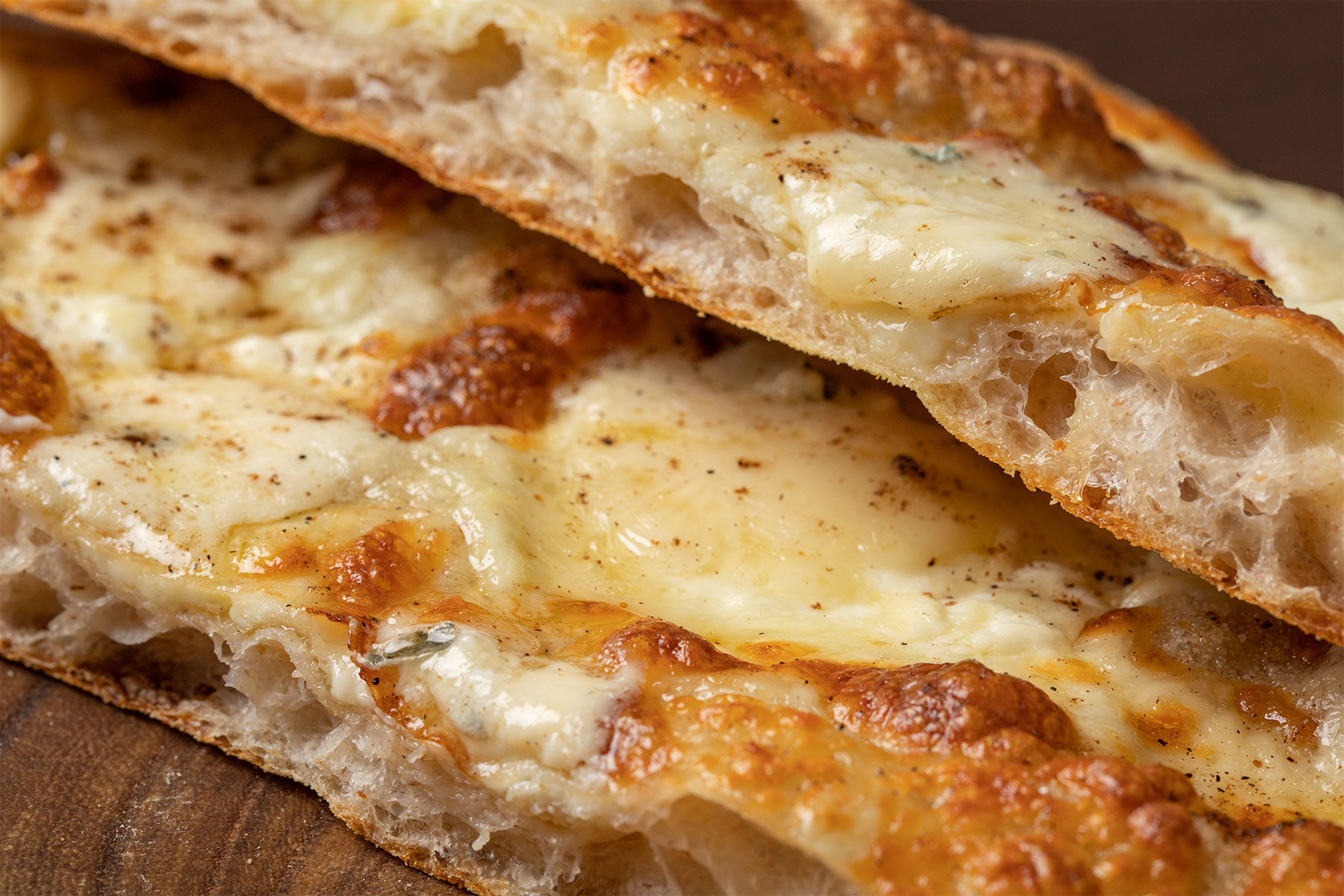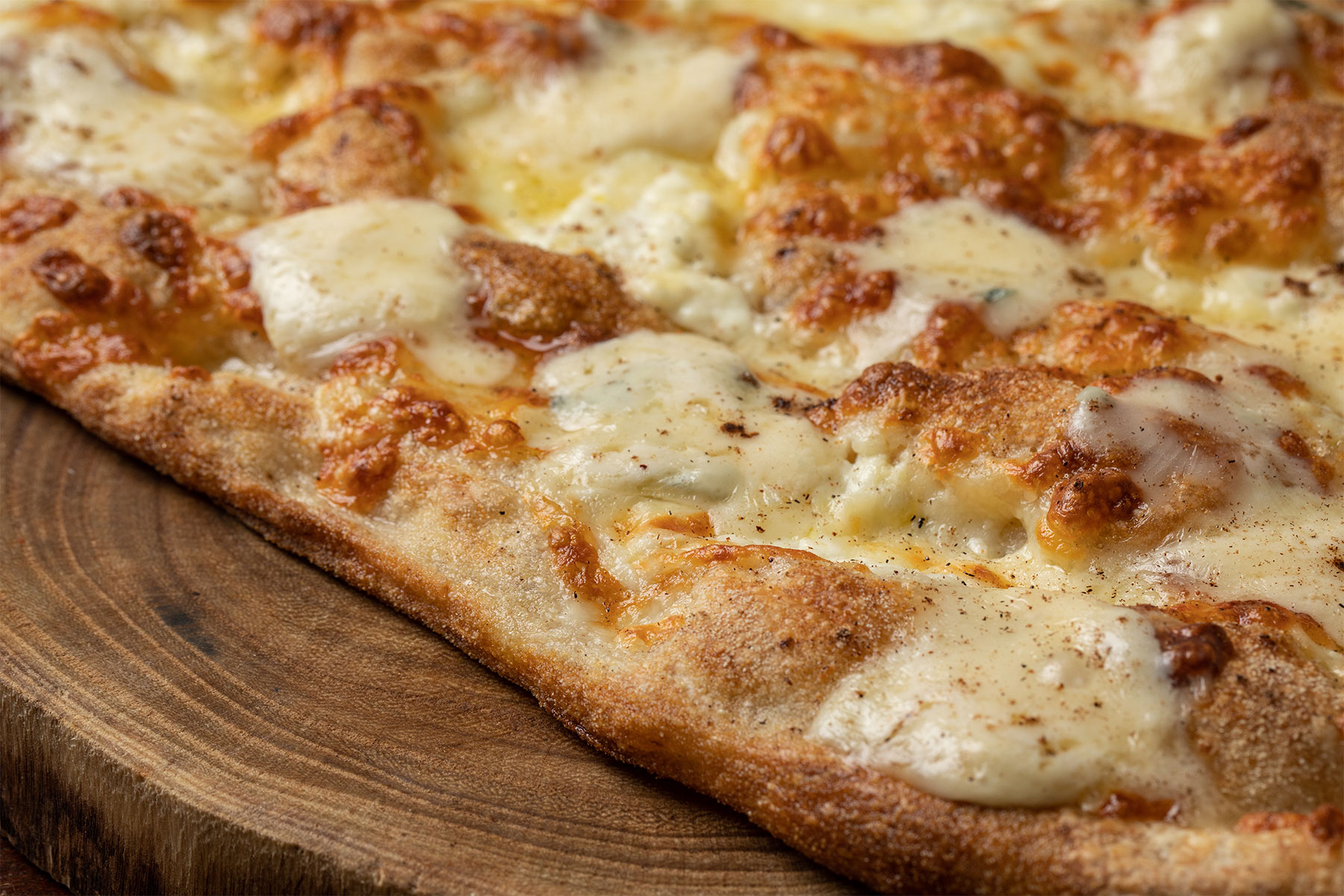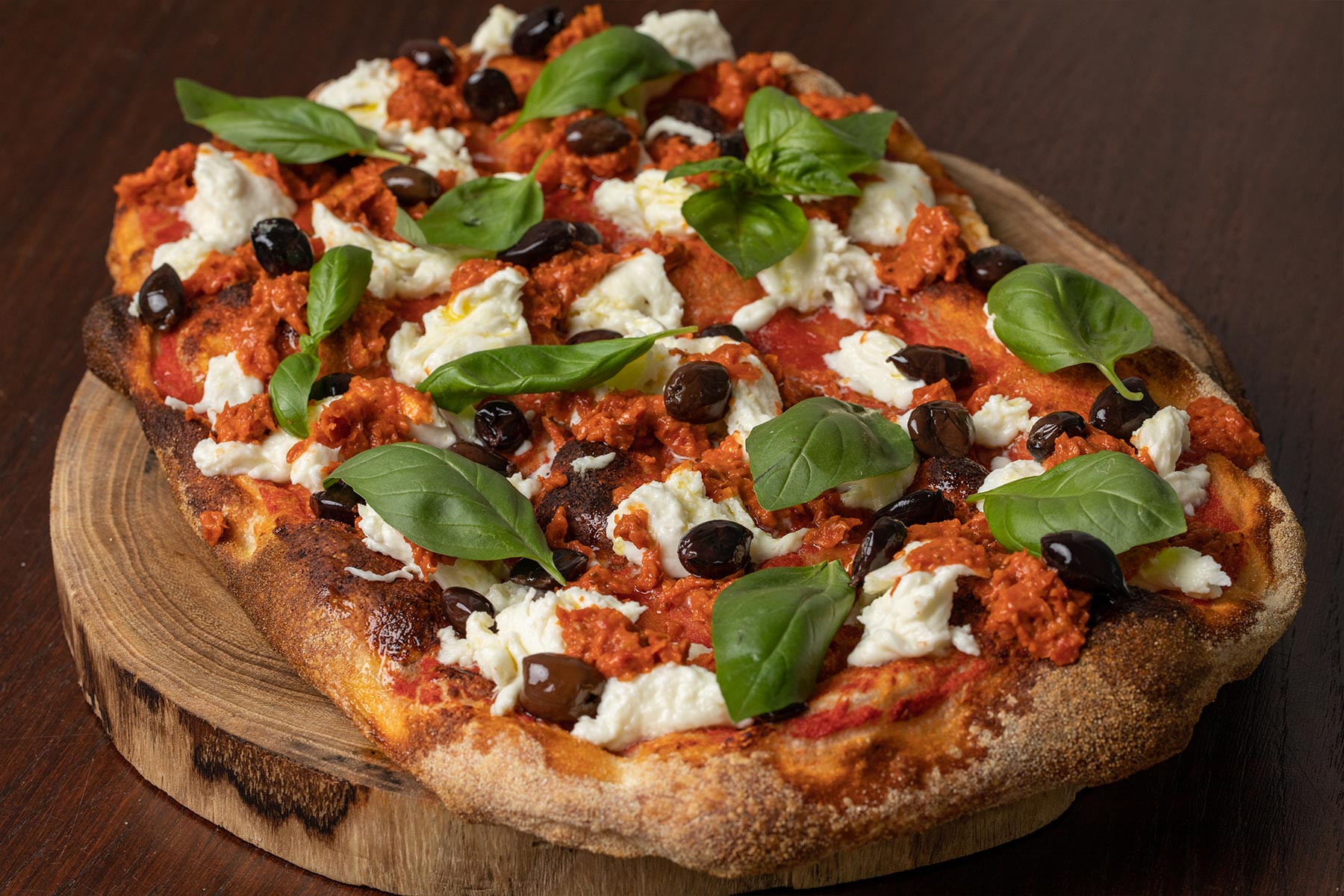Suggested by Chef Angelo Romano – Pizzeria Infermento, Naples
800 g Italian type 00 organic flour
150 g rice organic flour
50 g soy organic flour
½ sachet of dried yeast (about 1 g)
20 g salt
20 ml extra virgin olive oil
1 litre cold water (chilled from the refrigerator)
Mix the three organic flours on a work surface, then add the yeast and mix by hand or with a mixer (using a dough hook at the lowest speed). Add 80% of the chilled water and knead for about 3-4 minutes. Add the salt and continue kneading. Add the oil and continue kneading. Then add the rest of the cold water and knead for atleast another 5 minutes.
Put the pinsa dough in an container and place in the refrigerator for at least 24 hours.
After this proofing time, take the dough from the refrigerator and shape into 6 loves of about 250 / 270 g each. Leave to rest for another 3 hours until they have doubled in size.
Stretch each loaf into an oval shape and place on an oiled baking tray (use a drizzle of extra virgin olive oil) sprinkle with coarse salt and rosemary and bake in a pre-heated conventional oven at 250° C for 10 / 12 minutes. You can either eat it like this or add other ingredients of your choice, whether the classic fior di latte cheese and tomato or a seasonal topping like peppers in the summer, baking the topped pinsa for 200C° for another 5-10 minutes. Cooking times may differ in professional ovens.
Some different condiments proposed as toppings for the pinsa:
Pinsa, with its typical oval shape, gets its name from the Latin word “pinsere”, which means to stamp, pound, crush. In ancient Rome, this dish was prepared by the plebians using different ground cereals mixed with water, salt and herbs. In Virgil’s Aeneid, it is named as the first dish that Aeneas ate on landing in Lavinium. The traditional recipe uses a mix of different organic flours (soft wheat, soya and rice) kneaded with refrigerator-cold water (5%-80% of the dough for pinsa is water!) and a very small amount of yeast; the dough is then left to rise for at least 24 hours and a maximum of 150 hours, so the pinsa is always more fragrant, digestible and low in calories. This recipe is suitable both for professional pizzeria chefs and to be made at home, although of course the result will differ according to the oven used. If you want to make it at home, use the original recipe and adapt it to your needs and the oven available.


